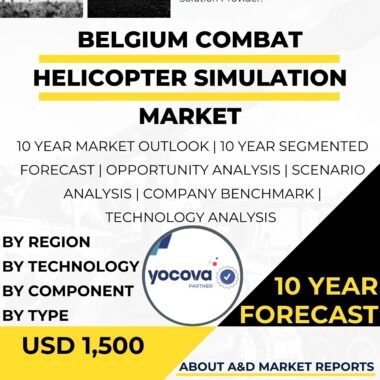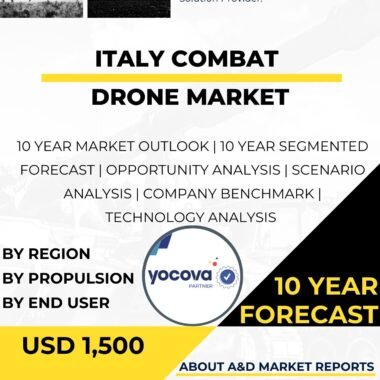Description
South Korea Combat Helicopter Market Overview
The South Korea combat helicopter market is a key and fast-growing segment of the nation’s defense industry. Combat helicopters provide critical capabilities for reconnaissance, close air support, anti-armor missions, troop transport, and search and rescue operations. These aircraft enhance battlefield mobility and force effectiveness while reducing risks to personnel.
Historical Development of the South Korea Combat Helicopter Market
The South Korea combat helicopter market emerged after the nation faced post-war security challenges. To strengthen its military, South Korea invested in acquiring and developing advanced helicopters. This helped build a robust aerial combat capability for national defense.
Current Market Landscape
Today, the South Korea combat helicopter market includes attack helicopters, utility helicopters, and multirole helicopters. These systems feature improved avionics, enhanced weapons systems, and upgraded sensors. Integration with command and control networks ensures faster decision-making and mission effectiveness.
Key Drivers of Growth
Military Modernization
Modernization of armed forces drives the South Korea combat helicopter market. With regional tensions, advanced helicopters are essential for operational readiness. They provide rapid response capabilities and support ground operations effectively.
Strategic Location and Security Needs
South Korea’s location in Northeast Asia makes a capable helicopter fleet vital. Combat helicopters allow monitoring of sensitive areas and quick deployment of forces during threats. They strengthen both defensive and offensive military operations.
Focus on Domestic Innovation
Indigenization supports the South Korea combat helicopter market. Government programs encourage domestic research and production. Investments in R&D lead to homegrown technologies that reduce dependency on foreign systems.
Technology Development and International Collaboration
South Korea collaborates with defense suppliers to access advanced helicopter technologies. Technology transfer and shared expertise help develop high-performance helicopters. Partnerships enable the country to apply best practices in helicopter design and production.
Export Opportunities
South Korean combat helicopters have attracted interest from international buyers. Recognition for quality and reliability boosts exports. Foreign sales create growth opportunities and encourage further innovation in helicopter systems.
Challenges Facing the Market
Rapid Technological Evolution
Helicopter technology evolves quickly. The South Korea combat helicopter market must continually develop systems with better range, stealth, and mission versatility. Continuous R&D is necessary to maintain a competitive edge.
Competition and Specialization
International competition is intense. South Korean manufacturers focus on niche applications and specialized solutions. Tailoring helicopters to customer-specific needs helps sustain market presence.
Regulatory Compliance
Strict arms export regulations impact market access. Exporting advanced helicopters requires compliance with national and international rules. Restrictions can limit sales in some regions.
Future Outlook
The South Korea combat helicopter market is expected to grow steadily. Government support for R&D and procurement drives innovation. Training programs ensure skilled personnel operate and maintain helicopters effectively. International collaborations enhance technology transfer and knowledge sharing.
Conclusion
The South Korea combat helicopter market is a dynamic and essential part of the nation’s defense. Growth is supported by military modernization, indigenous technology development, and export demand. By prioritizing research, fostering partnerships, and training skilled personnel, South Korea can strengthen its helicopter fleet and overall defense capabilities.




